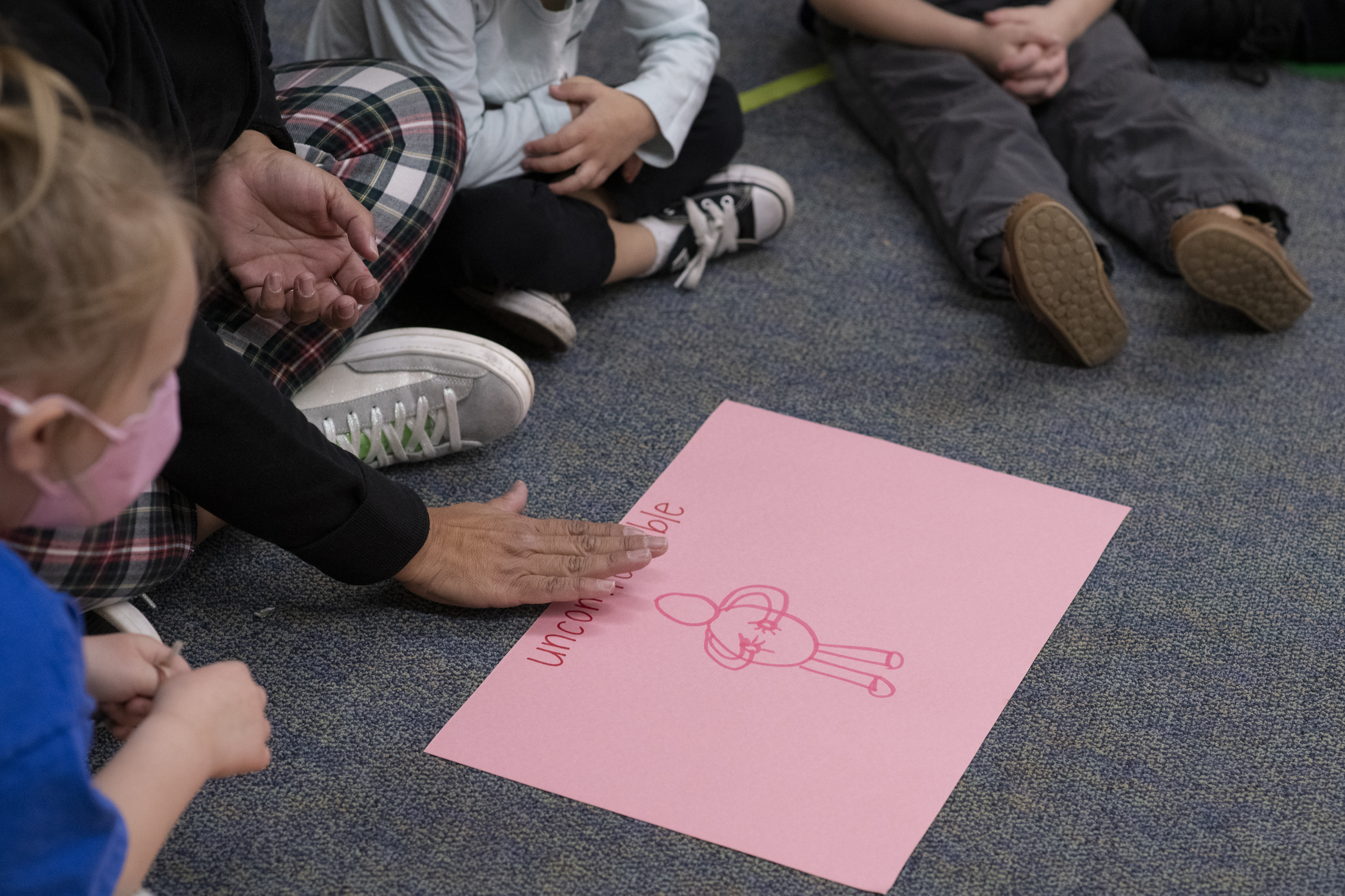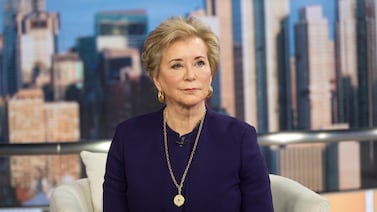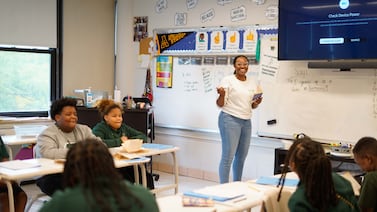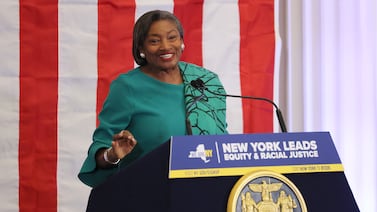Kiran Obee’s twin boys were in second grade in March 2020 when the pandemic hit. With school buildings closed, her boys’ special education services were provided over an app. They only saw their special education teachers a few times on video chat for social “lunch bunches.”
The following year, so many teachers at the twins’ school were granted exemptions to work from home that the school cut its hours. Obee kept her boys at a recreation center “learning lab,” which offered eight hours of child care and Wi-Fi for remote learning.
Even though they diligently attended virtual sessions with their special education teachers, the remote learning was not as effective, Obee said. At a meeting in May 2021, district staff told Obee that her boys qualified to receive makeup special education services.
District data shows Obee’s sons are among the 19% of Denver Public Schools students with disabilities who qualify for those services, meant to compensate for what students missed during the pandemic and address any regression.
The educators who know their students best are supposed to determine who qualifies and for what based on whether COVID disruptions interfered with students’ ability to access a free and appropriate public education, as guaranteed by federal law, and whether they lost skills or failed to make progress toward their educational goals.
But a year after they were promised the makeup services, Obee’s twins, now 9, are still waiting.
“Basically, it just feels like a very hollow commitment to my sons,” she said.
Advocates have praised Denver Public Schools’ proactive approach to what’s known as compensatory services, evaluating students to see if they qualify rather than waiting for parents to file complaints. The district set aside $12.1 million of its roughly $205 million in federal COVID relief funding, which must be spent by the spring of 2024, to pay for providing the services.
But Denver is leaving it up to each school to figure out the best way to deliver the services and when. That latitude has produced uneven results. While some schools have asked for a portion of the $12.1 million, district records show many schools have not.
At some schools, special education staff are already squeezing in extra services during the school day. At others, families say they haven’t heard a thing about it.
“The way in which we’ve been approaching our schools is, ‘These are the options, here’s some ways to think creatively, and we’d like for you to start solving this,’” said Julie Rottier-Lukens, director of special education for the district. “Because our school leaders and teachers know their students and communities best and they know their own capacity and what could be feasible, we wanted to try to provide flexibility in those options.”
Parent Deronn Turner, whose 12-year-old daughter has Down syndrome, sees it differently.
“This is something that happens with the district,” said Turner, an involved parent who pays close attention to district policies. “They don’t want to take accountability for it. They’ll go, ‘We’re going to leave it up to the school,’ when the school doesn’t have the right guidance and tools and resources.’ Basically what they’re doing is passing the buck.”
By the numbers
District data shows that as of April, schools had evaluated 7,322 students for compensatory services. That’s about 67% of the 10,806 students this year with special education plans, known as individualized education programs or IEPs. Of those evaluated, 2,053 students, or 19%, qualified.
Black students, like Obee’s twins and Turner’s daughter, were nearly 1.5 times as likely to qualify as white students, signaling that they missed more services and regressed further on their special education goals. Latino students were 1.3 times as likely as white students to qualify. Many Black and Latino students spent longer in remote learning due to family choice.
Middle and high school students also spent longer in remote learning than elementary school students due to district timing on reopening school buildings. Data shows more seventh, eighth, and ninth graders qualified for compensatory services than did younger students.
The number of students who qualified at each school also varies widely. At some schools, only one student was identified for compensatory services, district data shows. At others, the number was as high as 68. (The data for some small schools was redacted.)
It’s not clear if Denver’s numbers are high or low. District officials don’t know, and neither do officials at the Colorado Department of Education, which isn’t tracking the data.
“Knowing an average number of students who may be in need of compensatory services will be difficult because compensatory services are, by design, supposed to be very specific to the child,” said Paul Foster, the state’s executive director of exceptional student services.
“Also, different districts had different responses to how they provided services during the pandemic or were working under different constraints,” he said. “For example, some of our rural districts were in person for more of the school year than some of our metro districts, so the need for compensatory services may not be as significant an issue in our rural districts.”
Several national organizations that advocate for students with disabilities, such as the National Center for Learning Disabilities, The Arc, and the Council of Parent Attorneys and Advocates, said they aren’t tracking the data on a national scale either.
Missing students
Disability advocates prefer proactive approaches like the one Denver is taking over the approach supported by organizations such as Council of Administrators of Special Education, which argued that districts should provide compensatory services only when ordered to do so by a court or a due process hearing officer in response to a family complaint.
But even Denver’s proactive approach hasn’t reached every student. District data indicates as many as 33% of students with IEPs weren’t evaluated for compensatory services. Staff at El Grupo Vida, a Colorado organization that supports Latino families of children with disabilities, said none of the parents they work with have heard anything about makeup services.
Rottier-Lukens said it’s likely that some of the missing students graduated or moved away during the pandemic. Others may not have had IEPs at the start of the pandemic and therefore would be less likely to qualify for makeup services. The number of students newly evaluated for special education services plummeted in the 2019-20 and 2020-21 school years.
Pandemic-era special education staffing shortages also likely contributed to the gap, Rottier-Lukens said. In addition to lags in identifying students, ongoing staffing challenges — including educators quitting mid-year and unsustainable workloads for those who remain — make it harder to provide the compensatory services themselves, she said.
The district doesn’t have a reliable count of how many service minutes the 2,053 students who qualified are owed, let alone how many have been delivered, Rottier-Lukens said.
“As much as I’d like to say, ‘Great, we solved this one,’ it’s going to be something we’ll need to continue to work on and support our families,” she said.
Getting back on track
To that end, Denver Public Schools has contracted with a company called Catapult Learning to deliver compensatory services in literacy and math starting this summer. The contract is for up to $1 million and 1,000 students. Catapult staff will work with groups of up to four students for as many as 90 minutes per week at a cost of $160 an hour, the contract says.
Schools can opt to use Catapult’s services or they can go it alone. But district data suggests many have not started. Denver has only spent 3%, or about $403,000, of the $12.1 million in federal COVID relief funding it allocated for compensatory services, according to a budget presentation district staff gave to the school board Thursday.
North and John F. Kennedy high schools are among the few that have requested a portion of that funding and begun providing makeup services. The two schools also had among the highest numbers of students who qualified at 54 and 60 students, respectively.
North began last year with an in-person summer school targeting ninth and tenth graders who failed core classes, said Assistant Principal Amanda Marquez. This year, special education teachers used a new eighth-period block meant to provide all students with time to ask for extra help as a way to provide compensatory services to students with IEPs. North will also likely refer some students to Catapult Learning next school year, Marquez said.
John F. Kennedy created a new class called “academic success.” Instead of an elective class or free period, 15 to 20 students with high needs who regressed significantly during the pandemic spend that time working with two special education teachers.
The students are far behind — reading and doing math on a second- or third-grade level — and are embarrassed to ask for help in their bigger classes, said Sarah Walters, one of the two teachers. The class has proved to be a safe space to work on their skills, she said.
In addition, John F. Kennedy staff intermittently pull 40 to 45 other students from class to provide them with compensatory services. Walters and others are getting paid extra to work through their planning periods, but the additional workload has made for a tough year.
“Time is more valuable than money for teachers,” said Principal Tiffany Almon, “so they’re doing a lot to serve our students and get them back on track.”
Melanie Asmar is a senior reporter for Chalkbeat Colorado, covering Denver Public Schools. Contact Melanie at masmar@chalkbeat.org.








